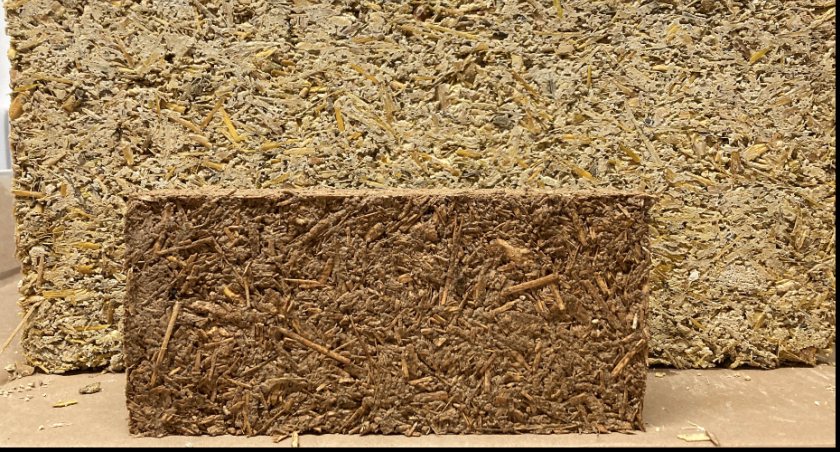
The production of low carbon, plant-based insulating blocks from farm materials could help to support rural economies and tackle labour shortages, experts believe.
A major new study has been awarded £3.3m to test if the materials, for use in local construction, could lead to a 'harvest to house' system of building.
The University of Exeter study will show if farmers could diversify into making sustainable building materials for use on their own farms, or for construction in the local area.
According to researchers, this could also benefit their own businesses, communities and the environment.
As part of the study, arable farmers and farm workers in Devon will be involved in the small-scale trial of a manufacturing process.
Researchers will explore the human, environmental, and infrastructural barriers and opportunities for production through working with farmers and farm workers.
And diversification into it may be useful to tackle the rural labour shortage which already threatens the viability of many farms, researchers say.
The project will investigate how diversification into building material production might complement, rather than conflict with, food production.
Researchers will interview farm workers so they can discover challenges faced and identify opportunities for future uses of the system or building materials.
Dr Caroline Nye, who is leading the project, said: “The needs of rural communities are often overlooked in policy decisions and rural poverty is exacerbated by low pay, insecure employment, unaffordable housing and poor public transport infrastructure.
"Participation and employment in a pioneering, environmentally sensitive new industry, centred in the countryside, could foster a closer engagement of deprived rural communities with the land and bring benefits of a distributed local economy.
“Producing building materials could offer stability to local farm workers who need employment out of season, allowing them to remain in the local area.
"Benefits to the farmer [include] experienced, consistent, higher skilled workers and repeat ‘returners’ to seasonal work, and stability to farmers who need to find other markets or make more from a crop.
“We hope this project will be a beacon for a new potential cohort of workers - the growing number of young people from non-agricultural backgrounds attracted to the promise of land-based ecological citizenship.”
The results of the University of Exeter's project will be showcased via a podcast series and with a local network of farmers.
